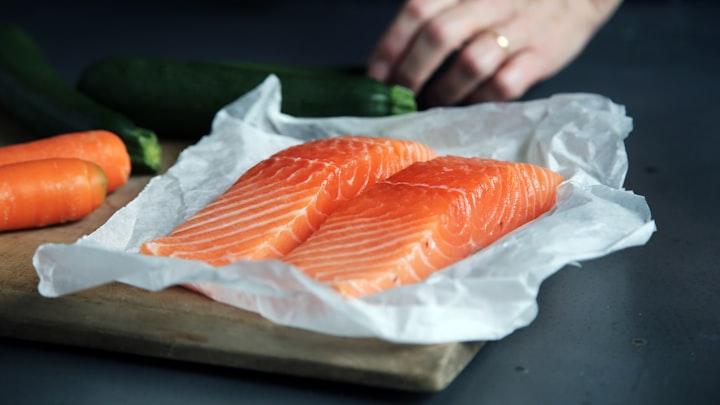Vegetarian vs Omnivor
I prefer to listen to what God taught me, Genesis 1:29

Do Vegetarians Really Have More Energy Than Omnivores?
Do vegetarians really have more energy than omnivores? It's a question that has been debated for years, and while there are certainly arguments on both sides of the debate, the answer may surprise you. In this blog post, we'll take a look at the facts and draw our own conclusions about whether vegetarians have an energy advantage over their omnivorous counterparts. We'll explore the research, examine the nutritional differences between the two diets, and discover what experts have to say on the subject. Read on to find out more!
The debate between vegetarians and omnivores
The debate between vegetarians and omnivores has been going on for centuries. It is an age-old argument, with no clear consensus. There are many opinions on both sides of the debate. On the one hand, vegetarians believe that a plant-based diet provides the most health benefits and environmental sustainability. On the other hand, omnivores believe that eating both plants and animals provides the most balanced nutrition for humans. The debate between vegetarians and omnivores is one that continues to this day.
Many vegetarians argue that a plant-based diet is more healthful, due to its high nutrient content, lower saturated fat intake, and avoidance of animal products. Furthermore, they claim that a plant-based diet is more sustainable than an omnivorous diet due to the impacts of raising livestock on the environment. Additionally, some vegetarians believe that ethical considerations should be taken into account when making food choices.
Omnivores, on the other hand, argue that eating both plants and animals provides the most balanced nutrition for humans. They believe that a balanced diet including meat and dairy provides essential nutrients that can't be found in plant-based foods alone, such as B12 and iron. Additionally, they argue that humanely raised livestock has a lower environmental impact than industrial farming. They also contend that a variety of foods help to promote food security and allow for dietary flexibility.
While there is no definitive answer to this debate, it is clear that both diets have their pros and cons. It is ultimately up to each individual to decide which diet is best for them.
The pros and cons of each diet
The vegetarian diet has many health benefits. Proponents of the vegetarian diet cite a number of potential benefits including lower risk of heart disease, cancer, and obesity, as well as decreased cholesterol levels and improved blood pressure. Vegetarians also tend to consume fewer calories than omnivores due to the absence of animal products in their diet. Additionally, vegetarians often receive higher intakes of vitamins and minerals such as Vitamin C, magnesium, and potassium.
However, the vegetarian diet may lack certain nutrients that are found in animal products such as Vitamin B12, iron, zinc, and omega-3 fatty acids. These deficiencies can lead to nutritional deficiencies and an increased risk of certain health conditions. But as a vegetarian you can supplement this lack with food supplement.
Omnivorous diets also have their advantages. A balanced omnivorous diet provides essential nutrients like protein, iron, zinc, and omega-3 fatty acids. Furthermore, omnivorous diets have a much wider range of options and flavors that can be tailored to individual needs and preferences. In contrast to the vegetarian diet, omnivorous diets are less likely to lead to disordered eating.
On the other hand, there are also some drawbacks to the omnivorous diet. Consuming large amounts of red meat is linked with an increased risk of heart disease and cancer. Additionally, dairy products may contribute to inflammation and digestive issues. Furthermore, since animal products contain more calories than plant-based foods, some people may gain weight on an omnivorous diet.
The verdict: who has more energy?
When it comes to energy levels, the debate between vegetarians and omnivores can be intense. While many people believe that vegetarians have more energy because of their plant-based diet, others argue that omnivores get the same amount of energy from their mixed diets. Ultimately, the answer to this question depends on the individual.
Some people may find that they have more energy when following a vegetarian diet. Plant-based foods provide essential vitamins and minerals that are important for energy levels, and vegetarian diets are typically low in fat and high in fiber, which can help keep energy levels stable throughout the day. Additionally, eating whole grains and legumes can help provide a steady supply of energy-boosting nutrients.
On the other hand, some people may find that they have more energy when following an omnivorous diet. Animal proteins provide important minerals, such iron, which are essential for energy production. Additionally, eating healthy fats, such as those found in fish and nuts, can help provide long-lasting energy throughout the day.
At the end of the day, it’s important to note that everyone is different and some people may find that one diet works better for them than another. Whether you choose to follow a vegetarian or an omnivorous diet, it’s important to eat nutritious and balanced meals to ensure that you’re getting the nutrients your body needs to stay energized and healthy.





Comments
There are no comments for this story
Be the first to respond and start the conversation.